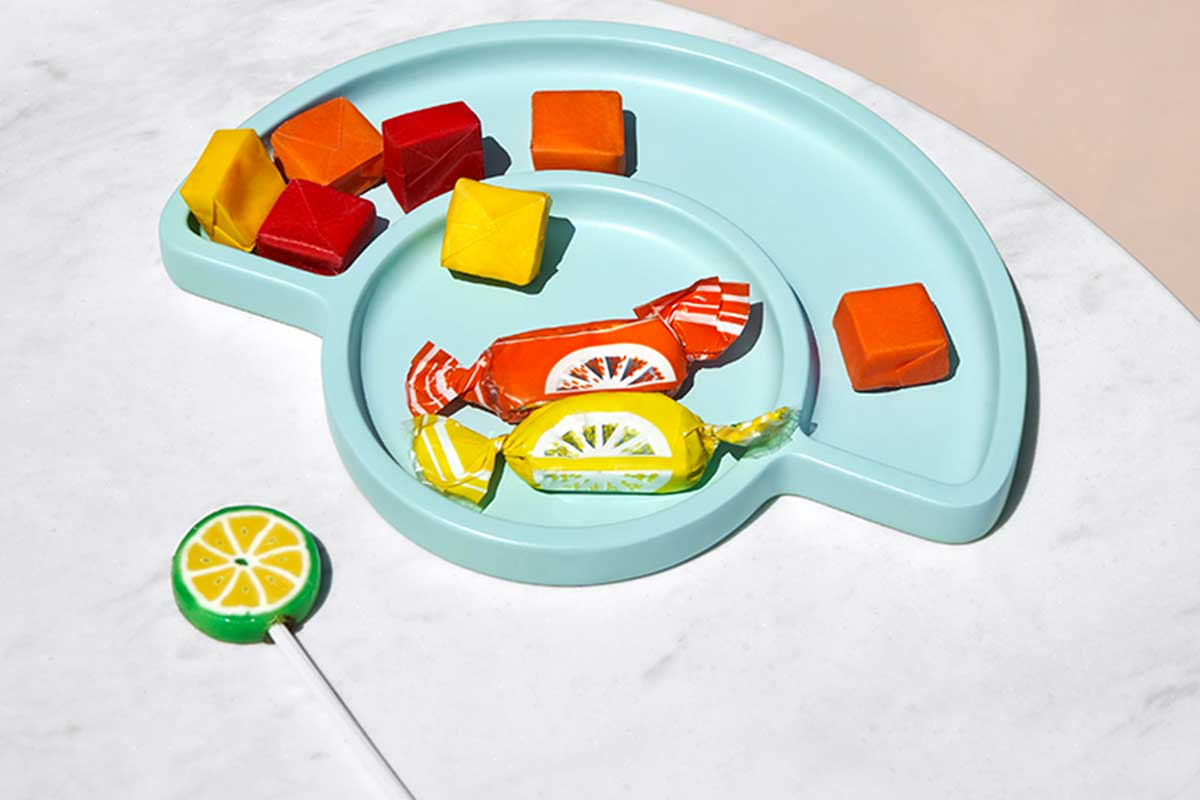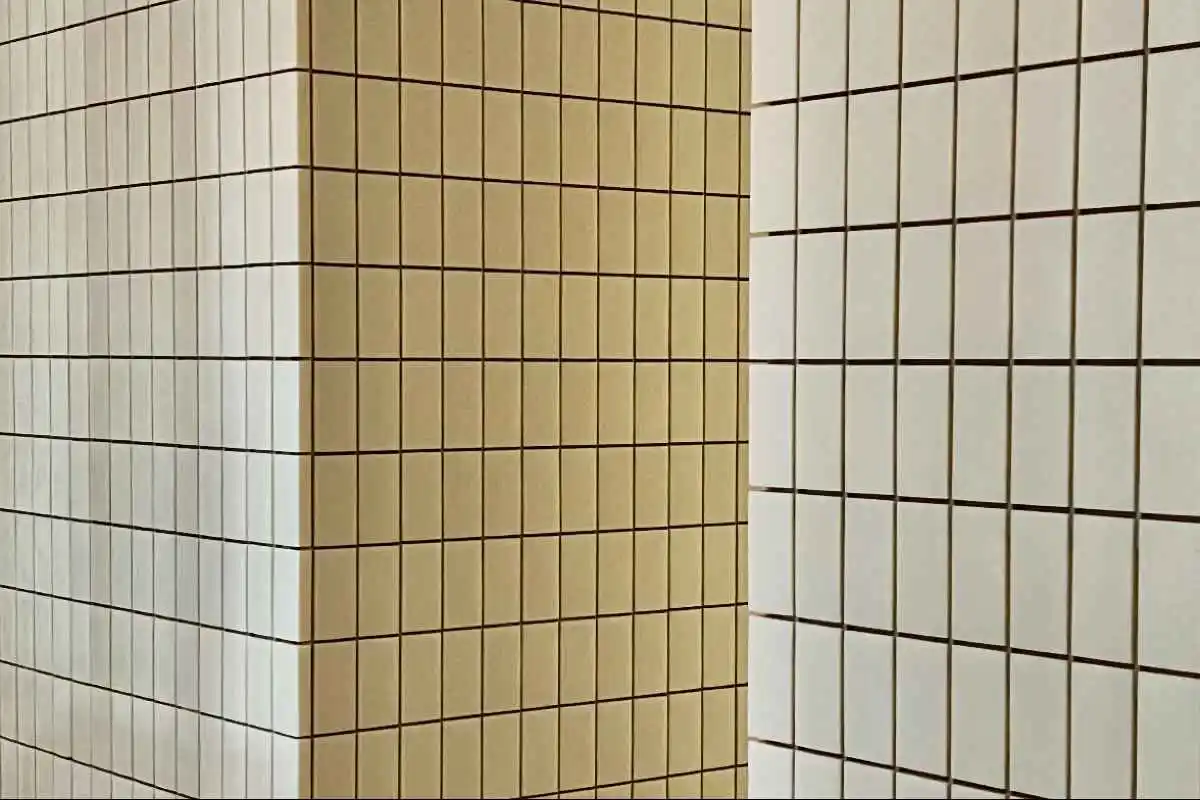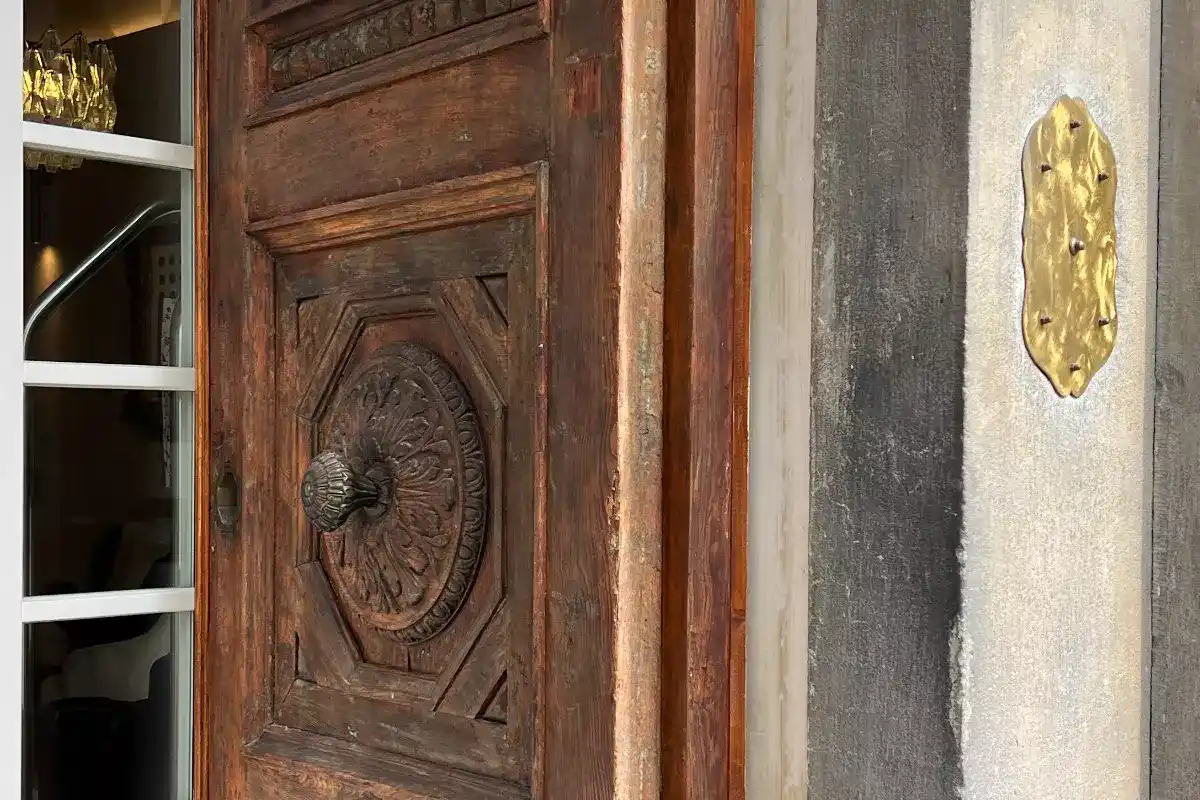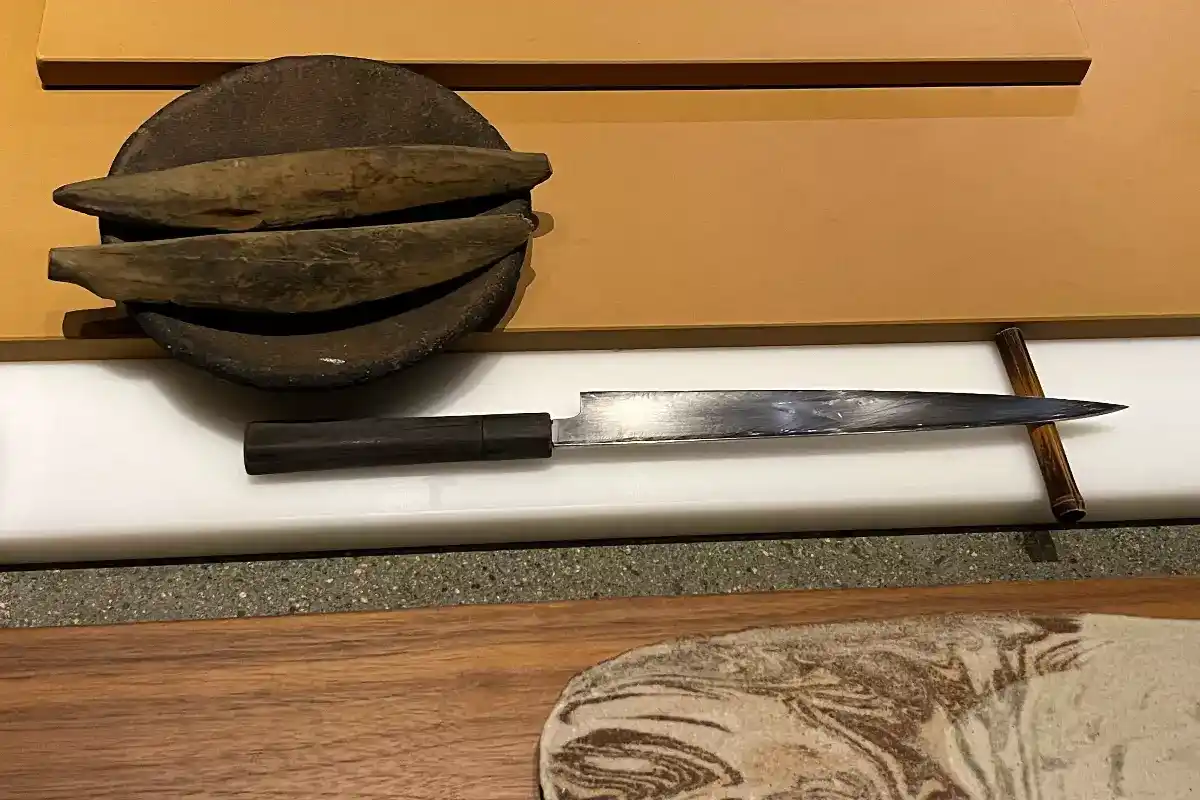Berlin’s Gallery Weekend and Art Week are occasions where Mitte bursts with people from around the world. A category of people aligned to Amodo’s ethos
Amodo in Berlin
«Fai a modo», an expression Marianna’s mother and grandmother would say to her as a child, means to behave well, and to do something well. When something is fatto a modo, it signifies it is properly done. To the store’s founder, this idiom enclosed what she wanted to propose with Amodo: quality items whose value surpassed the identity of a brand or its price. Founded by Marianna and Matteo in 2015, Amodo is a concept store that offers a selection of objects from textiles to children’s items, including books, stationery and ceramics.
Marianna and Matteo, who are partners and share a son, have been living in Berlin for eleven and nineteen years respectively. Before the two met, Matteo worked as an artist in the city and had a background in photography. While Marianna was looking for information before moving there. She came across his blog, wrote him, and they began getting to know each other. Coming from Modena and Treviso, they studied Conservation of Cultural Heritage in Ravenna and Udine. Between the nineties and the early 2000s, Bologna – which is seventy-nine kilometers away from Ravenna – had been the pivot that sparked Marianna’s interest in culture, music and art.
Marianna and Matteo – Amodo’s founders
When Angela Vettese was Director of Galleria Civica di Modena, Marianna’s specialization in contemporary-art led her to work at the institution. She later moved to Berlin, a city she felt in touch with. In those years, Berlin was at the center of art due to the number of artists, exhibition spaces and museums that animated its scene. Once she mastered her skills in the world of Berlin’s art galleries, working in spaces such as Supportico Lopez, run by Gigiotto Del Vecchio, Marianna started to question her career path. She did not want it to turn into a life choice.
«I invested in staying in Berlin to work in the art world. A decision that had significance until I understood it didn’t fit me. I came to see what I had dreamed of, and realized that universe wasn’t for me». Uncertainty and doubt followed, and as Marianna took a pause from the gallery world, she worked at RSVP, a stationery shop. Through that experience she then discovered her interest in approaching objects by considering their aesthetics, artistry and display. «The matter was not what, but how. How you treat an object and what you make of it». To Marianna, working in the store was akin to working at a gallery. It, in fact, acted as a conjunction between the art world and her passion for aesthetics, inspiring her to think about Amodo.
Lampoon review: Amodo’s interiors
When Matteo, Marianna’s partner, joined her in the project’s development, her idea transformed and matured. «We didn’t want to fill the store with objects. When I look back at pictures taken in our first years of activity, I can see how our approach to emptiness and radicalism characterized the space. There could have been two items on a two-by-two-meter block. The idea of purity in objects obsessed me», Marianna recounts. «A concept people did not understand and felt intimidated by».
The store’s display-furniture consists of wooden, movable-modules designed by an artisan friend of the couple. Amodo’s vision is having a limited-selection of items that speak of their past, their makers, designers and materials, as well as the decisions behind their creation. Marianna’s conception of the store revolved around letting her Italian identity and heritage shine through it without turning it into its core feature.
Being an expat in Berlin enabled her to conjoin her Italian background to her relationship with the city, bringing her journey into the business. Berlin’s Gallery Weekend and its Art Week are occasions where Mitte bursts with people from around the world. A ategory of people aligned to Amodo’s ethos. Living in Neukölln helps Marianna to carry into the store’s direction the contrast that distinguishes her neighborhood from Mitte, where the store is located.
Amodo’s online store
Throughout the years, Amodo’s offer has evolved. But its direction remained faithful to its premises. Amodo does not focus on selling high-end or branded goods. Nevertheless, in Berlin, where functionality and utility are a criterion for purchasing items, its price range can prove challenging to customers. «Giving value to objects is a test», remarks Marianna. To legitimize the store’s prices, Marianna and Matteo share the story of the items they select, and disclose the relationship to their producers to convey their meaning.
Being able to narrate and explain the worth of Amodo’s items is part of what the owners do in their day-to-day. It is an aspect that holds complexities from the customer and the maker’s point of view, as is the case when establishing prices on small-scale productions. Moving Amodo’s activities to its online store made Marianna reflect on her relationship to the physicality of the space. It made her rethink, in fact, the role of connecting with objects by seeing, touching, sensing their material.
«There is an idea that applies to contemporary-art», Marianna tells us. «An object is not what it is. According to the intention you give it and the way you treat it, it turns into something. An item, depending on the creator’s intent and the observer’s awareness towards its production can be multi-faceted».
The founders’ experience in the arts
Marianna and Matteo’s experience in the arts influenced their way of setting up objects in Amodo. They do not arrange them according to their pertinence or use. When Marianna studies compositions for items she aims to create a narration. The display of articles is on a color basis, through acts of association or concept-led juxtaposition.
In their search for makers and items, the owners’ research process is imbued with spontaneity and a desire to bring freshness to their collection. The store also works with small-scale producers who they select for their products and the relationship they build with them. «If those two principles do not coexist, and I cannot develop an exchange with the producer on a human-level, I prefer not to advance the collaboration», explains Marianna. At times the founders choose who to work with. In other instances, they are chosen.
Education to beauty at Amodo
Sustainability has become a theme of importance in the last decade. But Marianna never had an interest in plastic objects. «I prioritize items that tell their story through artisanship, such as wood, ceramic, glass, paper. I wear earrings that my grandmother used to wear. This can happen if items last in time. I therefore think of Amodo as a place where objects are handed down through generations».
To Marianna, this applies to kids’ items as well. Following the birth of her son, Cosimo, in fact, she entered the world of children’s goods, a dimension that can inspire horror or wonder depending on one’s choice, as she observes. Filled with plastics and with products with a lifespan, the realm of children’s articles is one that raises the founder’s concerns. Homes where children live can become crowded with paraphernalia – long-lasting items that kids and adults appreciate can populate them. Marianna argues that adults can educate children to see beauty and recognize an item’s value through play. In Italy there is a tradition cultivating these values, while keeping them alive to this day.
Designers like Bruno Munari and Enzo Mari uncovered the functionality inherent in one’s education to beauty, as Amodo’s founder notes. «It is believed that beauty has no value and no function. But the truth is that it is a political matter. It is elitist to think that beauty cannot be accessed by everybody». Amodo’s selection endorses this perspective by focusing on children’s items made to last, countering the tendency to amass items, replacing them as their owners grow. «Surrounding oneself with items that hold meaning is not a whim. It is a choice that impacts how we live and behave».
Amodo’s tailor-made paper bags
For Amodo’s 2020 Christmas shipments, Marianna bought a sewing machine to make tailor-made paper bags. Approaching the world of online tutorials and patterns allowed her to consider her detachment from the process behind the items we buy and wear every day. Schools in Germany feature workshops where children, with no gender distinction, learn the basics of handicraft. How to screw in a lightbulb, how to knit, and how to work with pottery. If schools taught children «what makes an item what it appears to be, who it was made by and how it was made», we could approach a state of awareness towards consumption and its implications.
To Marianna, introducing lessons on sewing or how to work on a loom into Italian primary schools would enable people to be conscious of what they purchase and consume from their childhood. «Our lack of understanding derives from a disconnection from the processes involved in the making and creation of objects. That is why teaching kids what it means to produce an item has relevance». This relates to the principle of «buying less but better». Learning to discern the materials with which an object is made and being able to retrace their origin are not platitudes in Marianna’s view.
«Being conscious of the work, effort, love, time and dedication behind an item’s production helps us recognize what they are worth. We tend to gather items we do not need. Once you value something, you quench your hunger for wanting more. When you are aware of how an object came to you and the labor it required, you experience satisfaction. The items we keep because of their quality and worth become companions to our existence. These are the ones that last a lifetime».
Amodo
Linienstraße 150, Berlin, Germany
Founded by Marianna and Matteo in 2015, Amodo is a concept store that offers a selection of objects from textiles to children’s items, including books, stationery and ceramics.




















